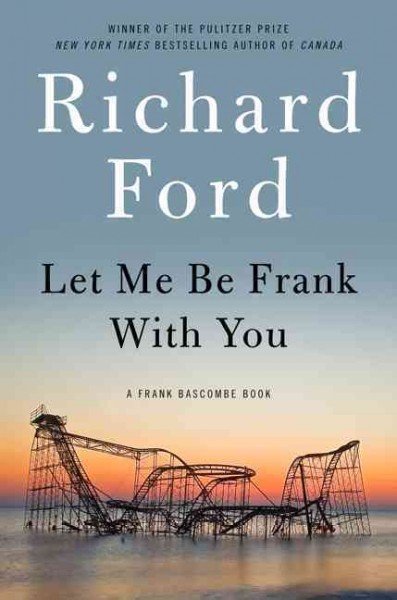Unsheltered Barbara Kingsolver (2018)
A meme that has turned up on Facebook proclaims, “Socialism never took root in America because the poor see themselves not as an exploited proletariat, but as temporarily embarrassed millionaires.”* Barbara Kingsolver presents this view in various guises in her century-hopping novel. At one point a character even says, about his fellow citizens, “‘They are happier to think of themselves as soon to be rich, than irreversibly poor.’” (261) How does Kingsolver unfold this story about people who fear homelessness and yet expect wealth?
In 2015-2016, Willa Knox and her husband, Iano Tavoularis, have just moved into a tumbledown house in Vineland, New Jersey, that they inherited at the same time as their fortunes collapsed. Willa was laid off from her job as a journalist, and Iano lost his tenured post—as well as their house, which was on college grounds—when his college closed. Willa and Iano are taking care of Iano’s difficult and very sick father. Their adult daughter has moved in with them after a mysterious venture in Cuba, and their adult son has saddled them with a newborn grandson. All this occurs in the first chapter, as readers access the story from Willa’s viewpoint.
Quick as a wink, and with clever word links between chapters, Kingsolver sweeps us back to 1874, to a Vineland, New Jersey, house that is also inherited and also tumbledown. Thatcher Greenwood lives with his social-climbing bride, Rose, plus Rose’s mother and young sister. Thatcher has a job teaching science at a high school where his views on Darwin’s recent publications about evolution are not at all welcome, but he finds support from a neighbor, self-taught biologist Mary Treat.
As explained in the Author’s Note, some of the characters in Unsheltered are actual historical figures. Mary Treat was one of the pre-eminent scientists of the nineteenth century. And real estate developer Charles Landis founded Vineland in the 1860s as a kind of benevolent utopian community. The settlers lured to Vineland by Landis with promises of prosperity were kept in poverty, though still expecting to become wealthy. Landis turned out to be a charlatan and autocrat. Similarly, Kingsolver portrays the populace of the United States of 2015-16 as being hoodwinked by a presidential candidate called “the Bullhorn,” who is clearly Donald Trump, though never named as such in the novel.
From our twenty-first century standpoint, we know that Darwin’s theories will eventually gain wide (though not universal) acceptance. In the 1870s, however, Thatcher Greenwood does not have this assurance as he argues for evolution, risking the loss of his job. In chapters that alternate between the nineteenth century and the twenty-first century, Kingsolver points out the parallels between Thatcher’s era and Willa’s, sometimes very bluntly, as when Mary Treat says, “‘When men fear the loss of what they know, they will follow any tyrant who promises to restore the old order.’” (206) In 2016, Willa’s daughter tells her, “’All the rules have changed and it’s hard to watch people keep carrying on just the same, like it’s business as usual.’” (410)
Alas, Kingsolver pushes too hard on the polemics in Unsheltered, which comes off as preachy. The sections in which poor Thatcher argues science against creationists are positively painful to read. If this is the first Kingsolver book that you read, please do not judge her by this one novel! She’s a gifted writer. Among my favorite novels of hers are The Bean Trees (1988), Pigs in Heaven (1993), and Prodigal Summer (2000), plus the nonfiction Animal, Vegetable Miracle (2007), with Steven L. Hopp and Camille Kingsolver.
* This quote has been attributed to John Steinbeck but is probably a paraphrase of Steinbeck by Ronald Wright.




